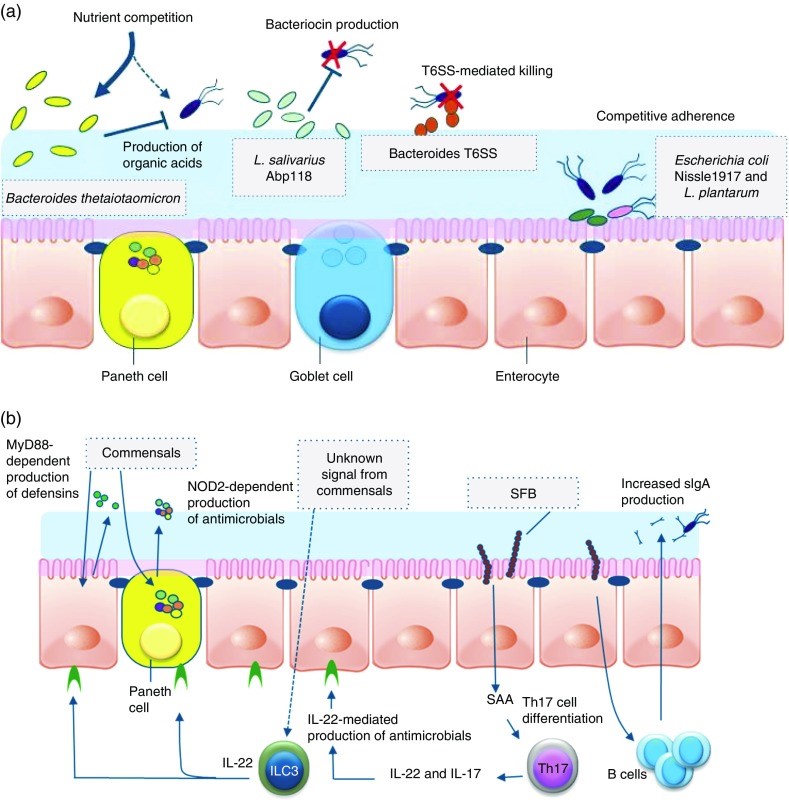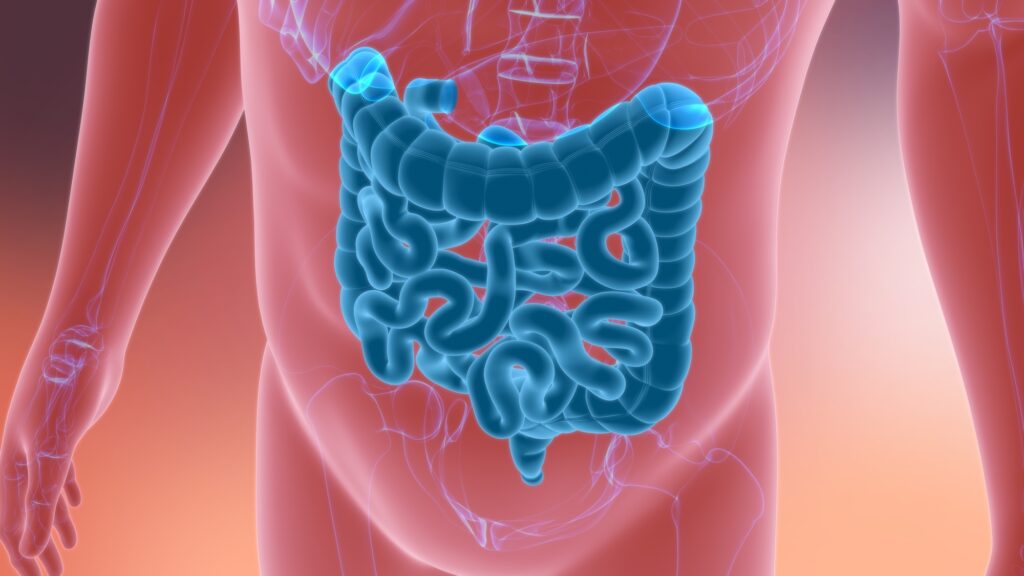Intestinal epithelial barrier integrity has a great deal to do with how we feel: both physically and mentally. The concept is a relatively simple one, although the mechanisms are complex.
A single layer of epithelial cells functions as a physical barrier between the intestinal lumen, the lamina propria, and the lymphoid tissue. Resident goblet cells produce mucus that helps contain microbes and their by-products within the lumen and out of both the epithelium and circulation. Mucosal antibodies, antimicrobial peptides, and other proteins further enhance the barrier integrity through immune exclusion and bacteriocidal effects.
Through direct competition with undesirable bacteria for nutrients and adhesion sites, the good microbes help prevent the accumulation of bad bacterial toxins
Commensal and probiotic bacteria play a pivotal role in barrier function as well. Through direct competition with undesirable bacteria for nutrients and adhesion sites, the good microbes help prevent the accumulation of bad bacterial toxins known to inflame enterocytes and thus disrupt tight junctions. The microbiota also serves to stimulate protective, innate, and adaptive immune response in the intestinal mucosa.
Direct and Indirect Mechanisms of Barrier Function Support1
 |
a. Direct Mechanisms: Commensal/probiotic bacteria compete with undesirable bacteria for nutrients and adhesion sites.
b. Indirect Mechanisms: Commensal/probiotic bacteria stimulate immunity through toll like receptor signaling, defensin expression, and antimicrobial peptide production.
Segmented filamentous bacteria (SFB) associate with the ileal epithelium to stimulate B- and T-cell maturation leading to enhanced IgA production. T-helper cells stimulate inflammatory cytokines involved in immune defense mechanisms.
Moreover, commensal organisms nurture epithelial cells through the fermentation of indigestible fiber, generating short-chain fatty acids (such as butyrate, acetate, and propionate) which additionally support regulatory immune function, and mucus secretion. All this coordinated activity is an effort to maintain the integrity of the barrier and healthy intestinal permeability.
Flaws in the system can result in gut barrier function defects, which ultimately lead to excessive permeability, inflammation, and other systemic implications resulting from increased circulating bacterial toxins (lipopolysaccharides) and proinflammatory cytokines. Targeted probiotic support, such as Ecologic BARRIER, can work to enhance healthy permeability through demonstrated mechanisms including epithelial barrier function strengthening, cytokine modulation, and suppression of circulating lipopolysaccharides.2
Read The Rest Of The 3-Part Series:
- Part 1: Gut Brain Connection: Talk Along The HPA Axis
- Part 3: The Vagus Nerve Superhighway: Formation of the Gut Brain Connection






